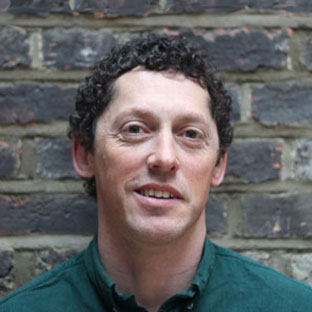Contradicting my previous call for reflectivity, last week I wrote a rapid-reaction article for the Local Government Chronicle about the future educational role of Local Authorities. I'll expect a bit of heat since I suggested that councils needed to embrace academisation, and also that:
"In the near future, some academies may realise that total independence comes with pitfalls, or that relationships with their academy provider have become excessively autocratic or bureaucratic – that they have nothing to lose but their chains."
The constellation of RSA activities I am getting my head round here, from the Academies Commission to work on the middle tier to the creation of our own family of academies model, all connect with broader issues around freedom, automony and control. I've also been inspired by Adam Lent's recent RSA Journal article on freedom, and how an individualistic, consumerist model of freedom has come to dominate and overwhelm older, more collective concepts.
Beyond the blustering rhetoric from all sides in education debates around trusting teachers and freeing up schools, is there space for a more sophisticated, nuanced and evidence-based conversation about freedom in our education system?
The general New Public Management mantra was that central government should define the what, giving localities, and professionals the freedom, within a tight accountability regime, to do the how in any way they saw fit. This should be challenged on two fronts. First, individual institutions and communities should have significant influence over defining the 'what'. This has to lie at the heart of localism. But second, where there is overwhelming evidence that one particular approach delivers the best outcomes, the Centre should reserve the right, and may even have the duty, to mandate this approach. It's not about favouring prescription or autonomy - it's about developing a clear rationale for when each approach is employed.
What might this mean in practice? On the what, the government is quite rightly slimming down the national curriculum, partly to give space for a local whole curriculum to flourish. This commitment needs to be reinforced by an 'intelligent accountability' that values the whole curriculum, rather than only the nationally-prescribed elements.
On the how, given the universal consensus about the importance of literacy, if the synthetic phonics approach is as effective as advocates claim (and the jury between my ears is still out), then the government is quite right to enforce this method in any way it can. In areas of practice where the evidence is mixed, schools should be encouraged to adapt and innovate, partly to play a role in improving the evidence base.
Last week, I participated in an OECD conference on local governance, part of a project on Governing Complex Education Systems. The UK* was seen by participants as an outlier in the way that we had hollowed out the local, giving both more freedom to schools and more power to the centre than any other OECD country. Whether we are outliers, trailblazers or just a nation of educational guinea pigs, the experiments taking place in our schools right now may, if properly reflected upon, shed new light on the theory and practice of freedom, both in education and across public services, and what kinds of freedoms lead to the best possible outcomes for all.
* Despite my attempts to explain the wonders of devolution, the OECD participants did not distinguish between England and the devolved nations.


Be the first to write a comment
Please login to post a comment or reply.
Don't have an account? Click here to register.